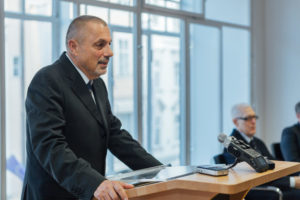About the New University
The rector of The New University is dr. Peter Jambrek, PhD
The rector is the academic and professional head of the University. The rector shall manage, represent and act on behalf of the University in conducting its professional, educational, scientific and research and other higher education activities. The rector shall perform the following tasks:
1. convene and, as a rule, chair senate meetings,
2. coordinate the educational, scientific, research and artistic and other work of the University,
3. in cooperation with the management board ensure and be responsible for the lawfulness of the work of the University, for fulfilment of its obligations laid down by law, other regulations and general acts of the University,
4. together with the senate adopt criteria on the quality of the University, study programmes, scientific research and professional work,
5. be responsible for the monitoring, determination and assurance of quality in self-evaluation procedures,
6. report to the senate, management board and the founder of the University about the work of the University,
7. award doctorates,
8. confer University awards,
9. make proposals for the senate to decide on the matters within its powers and make sure that the decisions are implemented,
10. make proposals for obtaining consent from the management board in performing the tasks within its powers,
11. follow instructions by the management board concerning the correct application and interpretation of the Act of establishing, Statute, decisions by the management board and director’s decisions,
12. perform other tasks in compliance with the regulations and general acts of the University.
